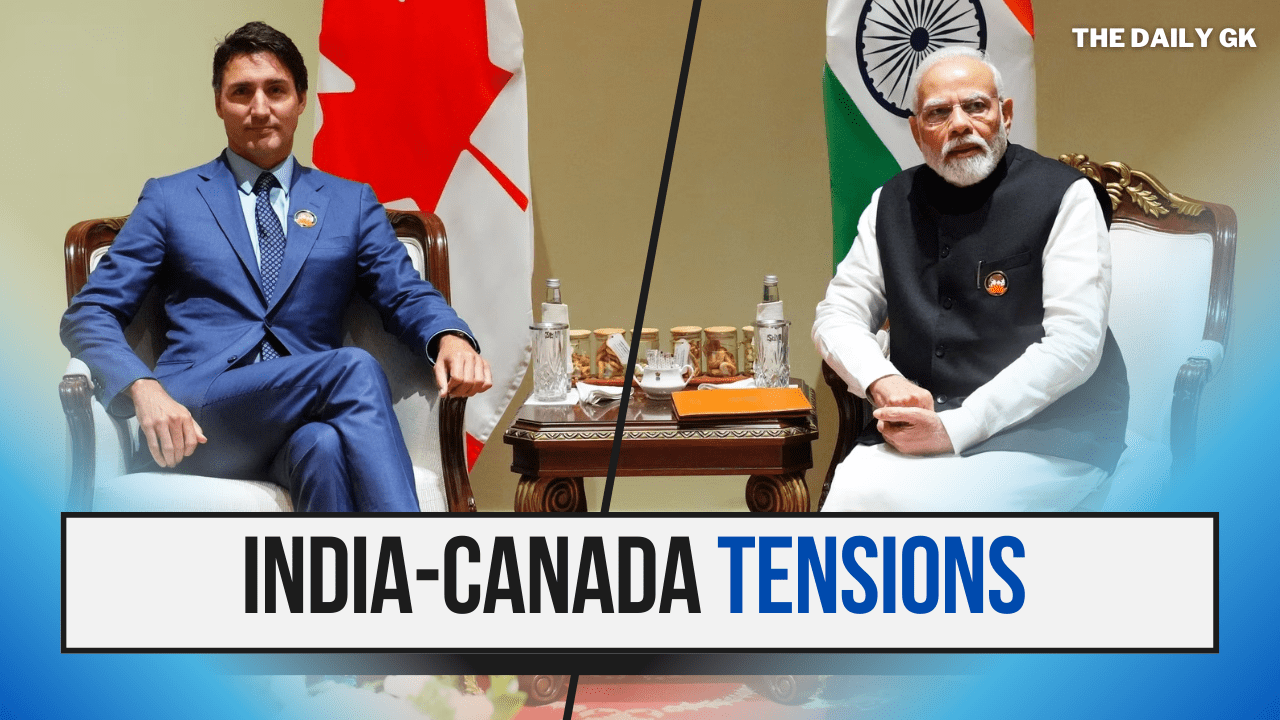Table of Contents
India-Canada tensions, The diplomatic tensions between India and Canada have raised concerns about potential economic consequences for Canada, especially in the education sector, as highlighted by research conducted by the Imagindia Institute. One significant aspect of this potential impact is the anticipated decrease in the number of Indian students opting for Canada as their destination for higher education.
Should there be a 5% decline in Indian student enrollments in 2024, it could translate into a substantial economic setback for Canada.
India-Canada Tensions Impact on the Canadian Economy
India stands as the largest source of international students in Canada, with an estimated 200,000 Indian students arriving annually to pursue higher education in the country. The economic significance of these students cannot be overstated, as they make substantial contributions to the Canadian economy.
On average, each Indian student spends approximately $16,000 during their educational journey, covering various expenses like laptops, housing, security, and airfare.
When considering the total expenditure for two years of study and stay, the average sums up to around $53,000 per student, translating to a considerable economic injection of $69,000 per student into the Canadian economy. However, the recent diplomatic tensions between India and Canada have cast a shadow of uncertainty over this vital revenue source.
A mere 5% decline in the number of Indian students arriving in Canada, particularly during the January intake alone, could have dire financial repercussions. Such a decline would potentially result in a staggering $230 million loss for Canada.
If similar declines in Indian student enrollments occur in the May and September intakes, the cumulative loss to Canada would reach a staggering $690 million.
Beyond tuition fees and living expenses, the economic impact extends to other sectors as well. Fewer visa requests from Indian students would also lead to a loss of approximately $3 million in visa fees for the Canadian High Commission in India. Furthermore, Indian students often support Canadian businesses post-graduation, contributing significantly to the local economy.
A decline in their numbers could lead to a substantial $34 million loss for small Canadian firms.
Background of Diplomatic India-Canada Tensions
Understanding the context behind these diplomatic tensions is essential to grasp the gravity of the situation. The dispute between India and Canada has escalated over time, with several key events triggering this discord.
It began when Canada complied with India’s request to reduce its diplomatic staff in the country, relocating most of its diplomats working in India from New Delhi to either Kuala Lumpur or Singapore.
Tensions further intensified when Canadian Prime Minister Justin Trudeau raised suspicions of Indian involvement in the killing of a Sikh separatist leader in Vancouver.
In response to Trudeau’s allegations, Canada halted talks on a proposed trade treaty with India and postponed a trade mission to the country. The Canadian leader suggested the involvement of Indian government agents in the killing, a claim India promptly dismissed as “absurd.”
Both countries retaliated by expelling diplomats, escalating the diplomatic feud. India, in particular, suspended the issuance of new visas for Canadians, which has had wide-reaching implications.
Conclusion
The diplomatic tensions between India and Canada have far-reaching consequences, with the potential to inflict substantial economic losses on Canada. The Indian student community has played a pivotal role in contributing to Canada’s economy, and any decline in their enrollment numbers would reverberate through various sectors.
To mitigate these losses and mend diplomatic ties, both countries may need to engage in diplomatic dialogues and negotiations. Rebuilding trust and cooperation is essential not only for the economic well-being of both nations but also for fostering goodwill and mutual understanding on the international stage.
Learn about the current affairs from here.
